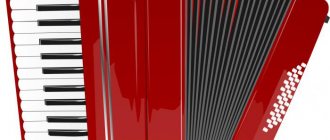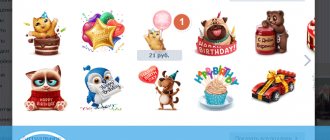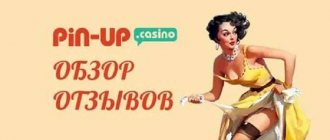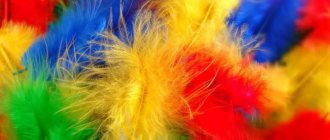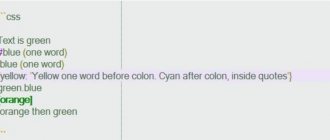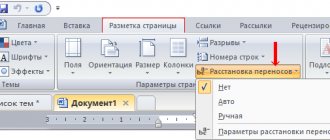Within the Internet, not only neologisms are born and old words are returned to use, but entire phrases appear that were not in the language before.
Most often, of course, this happens in the English-language segment of the network - and it was within it that today’s topic of conversation was born.
This article will continue to introduce you to Internet slang and its decoding - and this time the text is dedicated to the phrase that absolutely everyone uses now - this is LOL, or LOL.
Word writing rules
LOL is usually written in capital letters, but can also be written in lowercase letters to avoid having to press Caps Lock again. Both options have the same meaning. Using all caps can emphasize emotion and convey that you are actually laughing out loud. But at the same time, you need to be careful not to enter all the text with the caps pressed, because this is considered shouting. There is no need to put dots between letters.
"Lol" can be written in uppercase or lowercase letters
Where and how is this phrase used?
To answer briefly - now absolutely everywhere, even in youth slang in real life.
This phrase has become so popular among people that it is used on social networks, for example, VKontakte, Mail.ru and others.
LOL is used very simply - in response to something that made you laugh.
The fact is that emotions cannot be conveyed in text, and this expression is intended to smooth out this fact a little.
If you laughed a lot at something, then this is exactly what you should write in a message to a friend who sent you a funny text or in a comment.
It is also worth noting that recently LOL can be used in a negative context - for example, when a person tries to ignore another interlocutor in a dispute, or when he simply does not want to respond to a message.
Due to this, this abbreviation can be perceived in a negative way.
Other options
In conversations, synonyms for the word "lol" and other abbreviations are used to express shades of laughter, which have turned into memes:
- LUL is the phonetic spelling of lol, widely used in the Twitch.tv gaming community. Often used instead of hahaha;
- LOLZ – plural of lols, where the letter Z at the end replaces the S. Alternatively, LOLOLOL is used, where the word is repeated several times in a row for added humor;
LOLZ – plural of “lol” - LULZ – used to denote malicious laughter at the victim of a prank. Its use is associated with the emergence of Internet trolls. According to a New York Times article about internet trolling, lulz refers to the joy of upsetting another person's emotional balance. Closely related to this is the slang kekeke (sarcastic laughter), which can be perceived as an insult;
- TROLOLOL – formed by combining the word “troll” and repeating “lol”. Indicates that the joke is trolling;
TROLOLOL means trolling - LMAO (full form - Laugh My Ass Off) - “I laugh my ass off”, “I laugh until I cry.” Expresses wild, uncontrollable laughter, which can be replaced with the word “laughing”;
- ROFL, or Rolling on Floor Laughing - rolling on the floor laughing. Rofl expresses stronger emotions than lol, because the person is so funny that he sways on the floor.
The history of LOL
Oddly enough, this Internet meme did not even come from the World Wide Web - but much earlier, back in the days of the extreme prevalence of SMS messages and the appearance of the first telephone models.
The fact is that at that time communications were quite expensive, and sending long messages was extremely unprofitable.
Leet came into use - a fictitious language based on the maximum reduction of words without loss of meaning.
Later, the wave of popularity of this language also covered the Internet, where young people began to communicate in the same way.
Now this expression has gone beyond the boundaries of Internet culture and the sphere of instant messages, and is actively heard in the companies of young people who use it in their speech.
What does this abbreviation mean?
It is precisely part of this language that is the expression LOL - which compresses an entire phrase into three letters - laugh out loud - that is, a very loud laugh.
The Russian analogue is LOL, which is not deciphered in any way, and is a pure transliteration of a foreign phrase.
Examples of using the term
"Lol" is often used not only in written but also in oral communication to express positive emotions in addition to a phrase or to show a response to a joke. Here are some examples of using the term in speech:
- Great anecdote! LOL!
- – It’s better not to go out with such a hairstyle. - Lol, okay!
- I will never understand people, lol.
The word LOL and Internet memes with similar meanings help to accurately and quickly express any emotion associated with laughter. Find out the definitions of the slang words hyper, butthurt, so that you can talk with your interlocutors online in the same language.
Spread of a popular abbreviation
The word “lol” appeared only at the beginning of the 21st century. In 2003, a group of students conducted a study that found that 0.6% of all words used online were the abbreviation “LOL.”
In 2008, this figure rose to 2.4%. In 2011, "LOL" was officially added to the Oxford Dictionary.
In 2006, a comedy called “LOL” was released in France.
How to use LOL? Examples
It all depends on the situation, but here are the most common cases:
- Commentary on the cat’s unsuccessful jump: “How is this possible? LOL."
- Commentary on the comedian’s funny performance: “Greatly charged the audience, including me. LOL."
- Comment on your own post: “Well, I’m LOL, nothing can be done.”
Start using the famous acronym today!
Previous article: How to completely remove IObit from your computer Next article: What is Kek
Why did LOL become famous?
In addition to being an abbreviation, it is also an acronym. Not everyone knows about this, but anyone you ask will prefer the word LOL if the conversation is about ease of pronunciation. Three letters are much easier to fit into a meme; they sound like one syllable, which is why, in all respects, they are considered convenient for lazy or “hurrying” Internet users. That is why, if you have not yet introduced the expression LOL into your online vocabulary, do so, at a minimum, to save time and effort.
Where did the word LOL come from?
The word is written exactly like this: in capital letters, since it is an abbreviation. There are several known phrases that form a popular abbreviation:
- lots of laughs;
- laugh loud;
- laughing og loud.
All three expressions carry a similar semantic load. Rough translation: laugh a lot, laugh loudly, laugh. When compared with the Russian synonyms of these meanings, the expression “laughing” and “yaplakal” suggests itself. In addition, the following phrases can be considered similar in meaning and meaning to the word LOL: laughing under the table, rolling on the floor, holding my stomach and other phrases that describe a similar emotional state.
What does the word "LOL" mean?
Quite often on the Internet in forums, chats and in comments on youth entertainment sites you can come across the word LOL. Many young people use this word in everyday life, but do not think about the meaning of this word.
This abbreviation came to us from American slang. The fact is that when mobile phones appeared, a character limit was set in SMS messages and people began to shorten words. Gradually, these abbreviations moved into colloquial speech, and then onto the Internet.
An abbreviation consisting of the English words Laughing Out Loud, which translates as laughing out loud. And it is used when there is a need to express the feeling of laughter during correspondence. Those. This abbreviation expresses the feeling of laughing out loud when you read something funny or sent a funny joke in an SMS message, you responded to it and showed with the word LOL that the joke is really funny.
Currently, among elementary school students you can hear the word LOL, but not in the sense that the word actually means. Schoolchildren often pronounce it when they want to insult someone in the sense of being stupid or stupid. But whoever thinks so is mistaken.
The acronym has become widespread relatively recently. In 2003, a group of students conducted a study according to which the use of Internet slang in online communication, especially instant messaging, was lower than expected. The study analyzed 2,185 messages containing a total of 11,718 words. Acronyms were used only 90 times, of which 76 were LOL (0.6% of total words). According to another study conducted in 2008, the percentage of use of Internet slang, including the LOL acronym, was already 2.4%. In March 2011, LOL, along with OMG and the symbol <3, was included in the Oxford Dictionary.
Acronym LOL (an acronym is an abbreviation formed by the initial letters of words). And as on many sites it is written that synonyms for the word “lol” are dummies, noobs, losers, this is again not true. Synonyms of this word that have a similar lexical meaning. For example: brave-brave. So come to a conclusion, which synonym fits the acronym LOL? And the last thing I would like to note is that do not use this word as a curse word, because the word LOL means to laugh out loud. Don't be illiterate!
This is precisely the meaning that was originally put into it - it’s hilariously funny, I laugh out loud, I laugh out loud, I fall out of my chair (an even more lethal laugh is denoted by the word rofl, but that’s another article). This abbreviation is derived from the corresponding phrase in English according to one version of “Lots of Laughs”. Either way it's shortened to LOL. Sometimes they increase the number of O letters in a word, thereby emphasizing expression.
Our compatriots caught the similarity of the spelling of lol and the Russian letter Y, so you can also find this interpretation of the spelling of this phrase. There is also a close variant lulz, which means joke or joke. There is also a variation of OLOLO - it expresses irony or sarcasm (what is it?). In general, even jargons acquire different spellings and uses. The correct way to write this word is LOL, i.e. all letters in it must be capitalized, as in any other abbreviation. But this rule is not always observed, and the very meaning of this word, which in essence should only mean laughter caused by the user’s message (an expression of emotion, or approval of a joke, a compliment addressed to an opponent’s joke).
But, as you understand, laughter can be perceived in different ways. Some people are offended by him. This is especially true for people who are narrow-minded or who suffer from complexes. Also, teenagers very often react inappropriately to laughter (shkoloto, if expressed in Internet jargon).
Imagine a situation where such a person “frozen” something in a topic on a forum, chat or blog, and in the response to his message he saw LOL. Without really understanding its meaning, he takes laughter for an insult, and when many such cases accumulate, the meaning of this word will change somewhat.
From an illustrator of the most positive human emotion (sincere laughter), LOL moves into the category of insults. In some communities (mainly where “complex shkolota” predominates), LOL is understood as a stupid and narrow-minded person (stupid or simple-minded). Even more derogatory in this way, but this is already a figment of someone’s sick imagination (derived from LOL, again).
In general, if you want to express the emotion of laughter when communicating on the Internet, but there is no way to insert a suitable emoticon (although you can always try using a colon and a closing parenthesis “:)”), then feel free to put LOL. If we consider the rules of punctuation, then this abbreviation should be considered as an interjection (an emotion is expressed) and separated by commas on both sides.
Well, of course, you shouldn’t become like a “shkolota” and stoop to the level of redneck forums, using this word as an insult. This is a laugh, and that’s all... There is an opinion that they don’t use LOL anymore and have completely forgotten about it.
Facebook conducted research into the use of abbreviations and emoticons and it turned out that everyone had long forgotten about “LOL”. As it turns out, social network users prefer emojis, aka emoticons, and phrases like “haha” or “hehe.” To appreciate humor or laugh LOL, only 1.9% of users now write. At the same time, “haha” (our version is “haha”) is used by more than 51% of those who like to hang out on Facebook. Interestingly, there are also gender differences. Most men use "haha", but women prefer to express laughter with "hehe". Age also affects the use of LOL. Users over 28 years of age still use it quite often, but younger users prefer emoticons.
